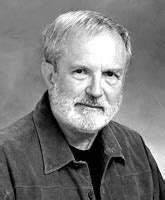A Quote by Erma Bombeck
I was a closet pacifier advocate. So were most of my friends. Unknown to our mothers, we owned thirty or forty of those little suckers that were placed strategically around the house so a cry could be silenced in less than thirty seconds. Even though bottles were boiled, rooms disinfected, and germs fought one on one, no one seemed to care where the pacifier had been.
Related Quotes
A review of seventy-four clinical trials of antidepressants, for example, found that thirty-seven of thirty-eight positive studies [that praised the drugs] were published. But of the thirty-six negative studies, thirty-three were either not published or published in a form that conveyed a positive outcome.
Basically, I realized I was living in that awful stage of life between twenty-six to and thirty-seven known as stupidity. It's when you don't know anything, not even as much as you did when you were younger, and you don't even have a philosophy about all the things you don't know, the way you did when you were twenty or would again when you were thirty-eight.
Most of us in the baby-boom generation were raised by full-time mothers. Even as recently as 14 years ago, 6 out of 10 mothers with babies were staying at home. Today that is totally reversed. Does that mean we love our children less than our mothers loved us? No, but it certainly causes a lot of guilt trips.
From the little reading I had done I had observed that the men who were most in life, who were molding life, who were life itself, ate little, slept little, owned little or nothing. They had no illusions about duty, or the perpetuation of their kith and kin, or the preservation of the State. They were interested in truth and in truth alone. They recognized only one kind of activity - creation.
Jesus must have been a really great artist in creating enemies because he was only thirty-three when he was crucified, and there were only three years of work because he appeared at the age of thirty. Up to that time he was with the mystery schools, going around the world to Egypt, to India, and the possibility is even to Tibet and to Japan.
The rooms of his apartment were full with the dog home again, convalescing. He was satisfied to know, even when she was out of sight, that somewhere in the apartment she was sleeping or eating or sitting watchfully. It was family, he guessed, more or less. Did most people want a house of living things at night, to know that in the dark around them other warm bodies slept? Such a house could even be the whole world.
People over the age of thirty were born before the digital revolution really started. We've learned to use digital technology-laptops, cameras, personal digital assistants, the Internet-as adults, and it has been something like learning a foreign language. Most of us are okay, and some are even expert. We do e-mails and PowerPoint, surf the Internet, and feel we're at the cutting edge. But compared to most people under thirty and certainly under twenty, we are fumbling amateurs. People of that age were born after the digital revolution began. They learned to speak digital as a mother tongue.

































